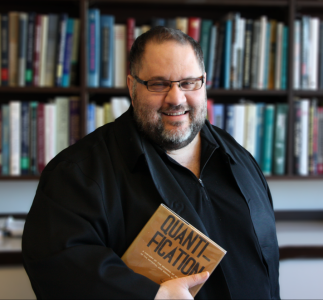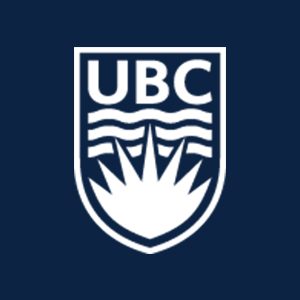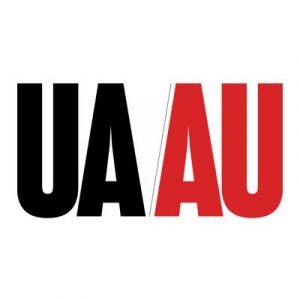By alex smiciklas
May 2,2019

Please join the Faculty of Education in congratulating Dr. Zumbo on receiving the School of Nursing Centenary Medal of Distinction.
These awards were established in celebration of the School’s one hundred years of university-based nursing education. The School is recognizing one hundred individuals who have brought high honour to the School or to the profession of nursing, or have significantly advanced the School’s vision, mission and mandate.
Dr. Zumbo has taught and served on many PhD students’ dissertation committees in his career and has had a productive program of psychometric research with several School of Nursing faculty members going back nearly 25 years.
Congratulations to Dr. Zumbo on this well-deserved honour.
By alex smiciklas

DEADLINES
April 15: Voluntary ORE internal review and feedback. Email PDF of application form and MS Word versions of your attachments and other application entries to Robert Olaj in the ORE.
April 26 10:00 AM: ORE deadline for faculty-level signatures on requisite Research Project Information Form (RPIF). Email your completed application (downloaded PDF from the SSHRC system) and completed RPIF to Robert Olaj in the ORE.
April 29 4:00 PM: UBC ORS deadline to receive your application and Faculty-signed and completed RPIF.
May 1: SSHRC deadline.
Connection Grants support events and outreach activities geared toward short-term, targeted knowledge mobilization initiatives. These events and activities represent opportunities to exchange knowledge and to engage on research issues of value to those participating. Events and outreach activities funded by a Connection Grant may often serve as a first step toward more comprehensive and longer-term projects potentially eligible for funding through other SSHRC funding opportunities.
Connection Grants support workshops, colloquiums, conferences, forums, summer institutes, or other events or outreach activities that facilitate:
- • Disciplinary and/or interdisciplinary exchanges in the humanities and social sciences;
- • Scholarly exchanges between those working in the social sciences and humanities and those working in other research fields;
- • Intersectoral exchanges between academic researchers in the humanities and social sciences and researchers and practitioners from the public, private and/or not-for-profit sectors; and/or
- • International research collaboration and scholarly exchanges with researchers, students and non-academic partners from other countries.
Special note: Applicants must commit an additional 50% of what is requested from SSHRC as cash and/or in-kind from partner organizations (contributions from individuals do not count toward the 50% match) at the time of application. For example, if you request $25,000 from SSHRC, you must come up with $12,500 in cash and/or valuated in-kind.
Read more
By alex smiciklas

The Office of Research in Education (ORE) receives an annual allocation of $100,000 from the Dean’s Office to support the Research Infrastructure Support Services program. In July 2016, this program was put on hold to allow the Associate Dean for Research and the Dean’s Advisory Committee for Research (DACR) to review the Faculty’s needs and consult with colleagues to ensure that these funds are optimally used to support faculty research. The revised RISS program is described below. Please note that these guidelines may be further revised in response to emerging research opportunities and needs.
RISS Program Objectives:
The goal of the Research Infrastructure Support Services (RISS) Program is to provide Education faculty members (with grant/tenure or grant/tenure track appointments as Professor, Associate Professor, or Assistant Professor) with the infrastructure support they need to pursue excellent research as defined by the disciplines represented within the departments and school. The RISS program complements competitive external research grants and internal seed funding by supporting activities that are typically ineligible for support from these sources.
Application Instructions:
- • Applications for RISS are due on April 5th, 2019 and October 4th, 2019
- • Please submit requests well in advance of the proposed activity as funding is limited
- • Application forms may be found here: http://ore.educ.ubc.ca/research/riss-program/
- • Due to the number of funds available, applicants are limited to one funded request per academic year
- • Applicants can request between $500 to $10,000. Note the adjudication criteria below with regard to budget requests being realistic (an example of a $10,000 application might be for UBC matching funds to go towards an SSHRC Partnership Development Grant).
- • Requests must be well justified and supporting documentation should be provided where appropriate. For instance, a request for editorial support should be accompanied by evidence of what costs are, and are not, supported by the publisher (e.g. a book contract).
- • Please submit proposals by email to Education Research
Read more
By alex smiciklas

- SSHRC Explore Grant (formerly HSS Seed Grant): Up to $7,000 to support early stage research activities that will lead to the development of external research funding applications.
- John and Doris Andrews Research and Development Award: Up to $12,000 to support educational research and development projects that have an impact on the community and make a contribution to society. The research component must have a direct impact on the community and increase knowledge and understanding of Canadian education. The development component must be conducted in collaboration with a community educational partner.
- Jacqueline Farquhar Endowment for Children’s Mental Health: $12,000 is available to support projects that translate completed research into accessible forms that community stakeholders and educators can utilize, disseminate and take into the classroom and/or community with a goal of impacting practice. This award is designed to support practical uses for completed research (e.g., the production of a brochure, books, workshops, instructional materials, web sites, etc.), with a clear potential to impact and increase the awareness of issues relating to children’s mental health.
Each program’s terms of reference and application form can be found on the ORE website: http://ore.educ.ubc.ca/research/funding/
Application Deadline: Please email complete applications to the Office of Research at research.educ@ubc.ca by 4:00 pm on April 30th, 2019.
If you have any questions about these funding opportunities please contact Robert Olaj in the ORE.
Read more
By alex smiciklas

Are you trying to organize a meeting with scholars from multiple disciplines who will partner with you for a CFI grant, a SSHRC Partnership Grant, to access some of the Canada First Research Excellence Funds, but you don’t know where to meet? The Peter Wall Institute may have the answer for you: The Institute provides support to UBC faculty in need of a workshop venue to meet and discuss potential collaborative research projects, themes, and research funding proposals involving multiple academic disciplines and faculties.
Objective
Theme Development Workshops often lead to Peter Wall Institute International Research Roundtable applications or provide the opportunity for participants to explore a research question, methods and plan to develop a proposal for other funding programs, such as the Canada First Research Excellence Funds, Canadian Foundation for Innovation funds, or other major collaborative research funding opportunities.
Support provided
A meeting venue at the Peter Wall Institute for a period of up to 4 hours
A modest budget for light refreshments for up to 15 participants (max $700)
Requirements
Please include:
Your project title
A proposed date for the workshop
A tentative list of UBC scholars committed to participating
Explanation of how the workshop will meet the Institute’s goals of excellence and innovation in research across multiple disciplines
The name of the funding agency and program to which the developed proposal will be submitted
Submission deadline
Proposals are accepted at anytime throughout the year. Please submit your proposal to nationalprograms@pwias.ubc.ca. The Institute will fund up to 15 proposals per year. Please submit your application at minimum one month prior to your proposed workshop date.
Read more
By epederso
March 19, 2019
Are you interested in using library resources with your students during class time? Flexible instructional space is available for reservation in the Education Library. The room can accommodate small classes of up to 20 students and is equipped with a projector and 3 computers. Please get in touch with your librarian if you would like to reserve the space.
Wendy Traas
Emily Fornwald
By ben drake

University Affairs
By: Dr. Wendy Carr and Dr. Blye Frank
March 13, 2019
Educators spend a significant amount of time with young people, some of whom may show early signs of a mental illness, particularly during the adolescent years when most mental disorders can be diagnosed. They are often the first to observe student behaviours that may portend mental health problems and be the first to secure support for students in need. And yet we know that, while approximately 20 percent of children and youth in Canada will develop a mental illness in their lifetime, many of those who require care do not obtain rapid access to the help they require.
One of the contributing components to this dilemma is that teachers report that they don’t know how to respond to the student mental health challenges they see in schools. When the Canadian Teachers’ Federation surveyed teachers in 2012, 70 percent of respondents indicated that they had not received professional preparation in mental health education and felt unable to sufficiently understand or appropriately respond to students’ mental health needs. How can faculties of education address this gap in teacher preparation, both at the pre-service and in-service level? (Pre-service refers to a teacher candidate who has not yet finished their education training, while in-service refers to a certified, practising teacher.)
Link to full text.
By alex smiciklas
2nd International Conference on Well-being in Education Systems
Where: Locarno, Switzerland
When: November 12 – 14, 2019
The Department of Education and Learning of the University of Applied Sciences and Arts of Southern Switzerland invites researchers and professionals in the field of positive psychology, well-being and education to submit proposals for the 2nd International Conference on Well-being in Education Systems, organized by the Competence centre for Innovation and Research on Education Systems (CIRSE).
More information regarding the call for proposals and the conference are available here: http://www2.supsi.ch/cms/wellbeing
By abby blinch
April 1 – May 10, 2019

Engage with Indigenous knowledge keepers, educational leaders, and resources to enhance your understanding and knowledge of practices that advance reconciliation in the places where you live, learn, and work.
This MOOC (massive open online course) will help you envision how Indigenous histories, perspectives, worldviews, and approaches to learning can be made part of the work we do in classrooms, organizations, communities, and our everyday experiences in ways that are thoughtful and respectful. In this course, reconciliation emphasizes changing institutional structures, practices, and policies, as well as personal and professional ideologies to create environments that are committed to strengthening our relationships with Indigenous peoples.
The next offering starts April 1, 2019! Register now!
Read more
By alex smiciklas
March 11, 2019
![]()
The Office of Research in Education (ORE) is pleased to announce that Patricia Liu Baergen has won the 2018-2019 Ted T. Aoki Prize for Outstanding Dissertation in Curriculum Studies for her dissertation Generative Tensionality: Intellectual Works of Ted Tetsuo Aoki, with support from her PhD supervisor Dr. William Pinar.
Congratulations on your achievements!
Read more





